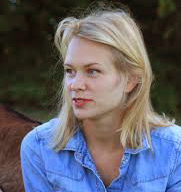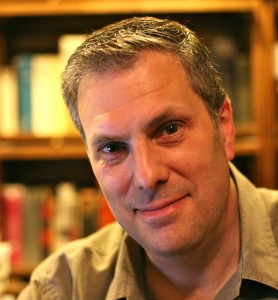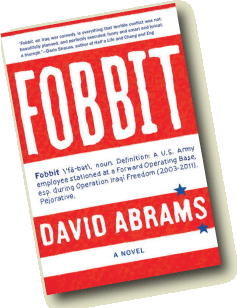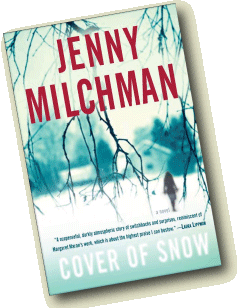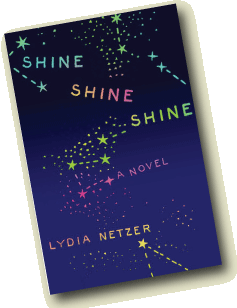Elizabeth Huergo's debut novel, The Death of Fidel Perez, has just been published by Unbridled Books and I'm very excited to read it. As none other than Oscar Hijuerlos has said of her book, "There is an erudition of language and a wealth of dramatized history in this novel. Both a portrait of the realities of the revolution and a speculative fiction as to what has happened to the Cuban soul with the event of Fidel Castro’s rise and—in this scenario—what may well happen with his passing, The Death of Fidel Pérez will reward both a general audience looking for a lively read and the discerning reader who truly cares about literature: in short, a heartfelt and well-written novel, with a provocative premise.”
As always, I'm interested in the story behind the story, so I asked Elizabeth how her first novel came to be:
VP: Your novel, The Death of Fidel Perez, is set in your country of origin, Cuba. I wonder if you wrote stories or earlier pieces prior to this book that helped lead you to it, perhaps ones that are set there as well? I'm also curious if there was a long gestation period for your book, or did the characters and plot come to you quickly?
 EH: No, I didn’t write earlier versions of the novel. There was a long writing process--eight years, but a story, of whatever length or genre, comes to me as a whole and very quickly. I have a moment when I see the entire novel in my mind’s eye. In a flash the story becomes a beautiful architectural space that I can move through. I see this space in my mind’s eye, but I can also sense my movement through it. The flash is both a blessing and a curse because I end up pursuing this vision in a very Romantic or Shelleyan sense.
EH: No, I didn’t write earlier versions of the novel. There was a long writing process--eight years, but a story, of whatever length or genre, comes to me as a whole and very quickly. I have a moment when I see the entire novel in my mind’s eye. In a flash the story becomes a beautiful architectural space that I can move through. I see this space in my mind’s eye, but I can also sense my movement through it. The flash is both a blessing and a curse because I end up pursuing this vision in a very Romantic or Shelleyan sense.
I went to Cuba, and when I returned to the US I began this novel. In her stories about Remedios, Cuba, where she grew up, my mother sometimes talks about Saturnina, a crazy woman who decided one day to put on all of her skirts and live in the streets. One day, during my visit, as I was walking through l’Habana vieja (Old Havana), I peered into a building covered by mosaic tiles.
I didn’t realize, however, that on the other side of the tiled façade most of the building was in rubble. I peered inside and found, at the top of a barely intact stairwell, an old woman in a rocking chair, the morning sky behind her, wearing everything she owned, and appearing to me as an ancient Madonna in a grotto.
I was expecting a grand foyer, one more example of the island’s rich architectural history that I could photograph. Instead, I had this deeply mystical experience as I peered across that threshold. I let go of the camera hanging around my neck. I wanted to apologize, but here was nothing for me to say. This fragile old woman, a bundle of rags and bone, nodded at me like a monarch on her throne. It was almost as if she were giving me permission or forgiving me for the intrusion.
I named her Saturnina, and she haunted me all the way back to the United States until I wrote down what had happened, first as a journal entry, and then eventually as the first chapter of The Death of Fidel Pérez.
VP: Many first time novelists have a long path to publication. I’m curious about your backstory. You had published short stories before and some of them have been anthologized, but I wonder if The Death of Fidel Perez is the first novel you ever wrote?
EH: Yes, the The Death of Fidel Pérez is the first, and it took me eight years to complete because I wasn’t just writing. I was teaching myself to write a novel. It’s also a very elegiac story. My own relationship to the manuscript was emotional: I was recreating something that I had lost, but also something that I was finding through the process of storytelling. I had to surmount the fear in myself that telling the story would be too painful. I had to teach myself at a visceral, cognitive level that the story would heal me.
I learned from reading Nadine Gordimer’s work that the short story can serve as a sketchbook of sorts for a longer, more complicated form. So my short stories served in that manner, especially “The Cigar Box,” which I wrote practically in one sitting. And the story came about because I was reading, not only Gordimer, but Heinrich Böll, who was the post-war writer of his generation who took on the political and social history of Germany, a daunting task for a German, and a task similar to Gordimer’s, a writer who takes on the social and political history of South Africa, of apartheid.
Gordimer’s short story sequence, “Six Feet of the Country,” and Böll’s short story, “The Rucksack,” taught me something about the viability of history as a character. In fact, I quote Böll directly at the very beginning of “The Cigar Box,” and the completion of that story, and especially the generous response of Eamonn Wall to the story, gave me confidence and propelled me forward. Eamonn, an Irish poet who has lived in the US for many years now, happened to be the guest editor of a volume on exile in Natural Bridge, a literary journal published by the University of Missouri, St Louis. He really could not have been kinder or more helpful.
VP: How did it come to find a home at Unbridled Books?
EH: My first impulse is to laugh and explain that I have no idea how the universe works except that it seems to require surrender at every point. We control so little, really. My second impulse is to tell you a story about how deeply I listened to a writer and mentor, Richard Peabody, and how that seemingly passive action led me to a wonderful agent and then a publisher.
Toward the very end of his novel seminar, Richard talks about the critical elements of a cover letter, the sort of cover letter that will pique an agent’s curiosity, despite the endless piles of queries she receives. “You have to describe your novel in one sentence,” Richard insisted. The students in the class pushed back. He answered their questions, but he stuck to his point and went on to elaborate on other, rather counter-intuitive aspects of the cover letter.
The following week, everyone came to class with their draft cover letters, the focus of that last class discussion. All of the letters were two- and three-page descriptions of plot or writing process, long explanations about the writer’s heart-felt devotion to the beloved manuscript. On some level, conscious or unconscious, the students seemed to feel that they knew more about the industry, about the culture of agents and publishers and writers, than Richard did.
Me? I took him quite literally—in large part because I have spent so many years teaching writing and observing the energy students often misspend in resisting instruction, even when that resistance is not conscious. I struggled all week and finally boiIed my novel down to one sentence, the opening sentence of my cover letter: “The Death of Fidel Pérez is a tale told by Che Guevara and overheard by Italo Calvino.”
I sent out my first batch of ten cover letters to New York agents interested in literary fiction and got an 80 percent return, which is outrageous. One of those responses led me to an extraordinary agent at Don Congdon Associates, Katie Grimm.
And having spoken to Katie, I remembered something else Richard said during our seminar. It was almost a throw-away, a casual bit of advice tossed like a message in a bottle: “Get an agent who genuinely believes in your work.” Katie pitched my novel for a full year with exactly the same enthusiasm, intelligence, and work ethic that she demonstrated the first month we worked together. She found Unbridled Books and Fred Ramey, another extraordinary professional.
So, as in The Life of Pi, you have to decide which story you prefer: the spiritual or the rational? I prefer the spiritual one, the story that lies suspended across invisible corners, a vibrating nexus of causes and effects that insist on the essential mystery of life.
VP: I'm sure your readers will be curious what you're working on next. Can you share with us your current project?
EH: I’m almost done with my second novel, Between Ana and Ella, which is a contemporary version of The Grapes of Wrath.

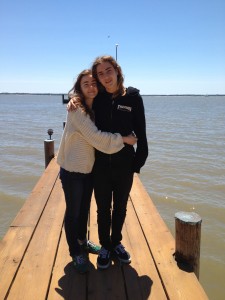
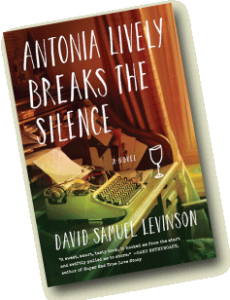
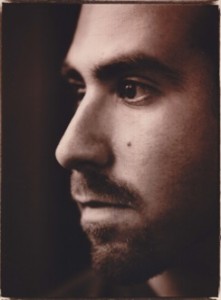 DSL: The book was a total mess to begin with, as most first drafts are. Catherine was much older and the style of the writing was fairly stilted, Henry Jamesian. I wanted to write a 19th-century novel and set it in the present. I showed my writing group at the time a couple of chapters and they all said the same thing—it need a facelift. So I gave it a facelift. I made Catherine much younger and I updated the language to make it more germane to the current culture, because of course it's your job as a writer to please everyone but yourself. Haha. But something began to happen when I began to shake the dust off it. It entered a different phase of life, younger, more vibrant, and I thought, I can still write a 19th-century novel because I'm dealing with 19th-century themes and people. All of my characters long to live in a different era, an era before television and the Internet (the book is set in 1991, long before cell phones and the Internet), an era that was far more simple and more connected. I find that our era is so fractured and discombobulated that it's no wonder certain books flourish. They reflect the culture in which we live. Well, I wanted to write a novel that reflected a culture in which we don't live. Even though it might have a similar look and feel to our current millennium, it isn't. It's otherworldly, even old worldly, and the characters in the novel behave as such.
DSL: The book was a total mess to begin with, as most first drafts are. Catherine was much older and the style of the writing was fairly stilted, Henry Jamesian. I wanted to write a 19th-century novel and set it in the present. I showed my writing group at the time a couple of chapters and they all said the same thing—it need a facelift. So I gave it a facelift. I made Catherine much younger and I updated the language to make it more germane to the current culture, because of course it's your job as a writer to please everyone but yourself. Haha. But something began to happen when I began to shake the dust off it. It entered a different phase of life, younger, more vibrant, and I thought, I can still write a 19th-century novel because I'm dealing with 19th-century themes and people. All of my characters long to live in a different era, an era before television and the Internet (the book is set in 1991, long before cell phones and the Internet), an era that was far more simple and more connected. I find that our era is so fractured and discombobulated that it's no wonder certain books flourish. They reflect the culture in which we live. Well, I wanted to write a novel that reflected a culture in which we don't live. Even though it might have a similar look and feel to our current millennium, it isn't. It's otherworldly, even old worldly, and the characters in the novel behave as such.